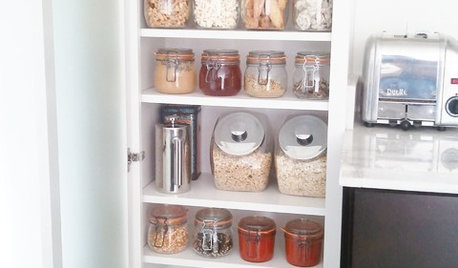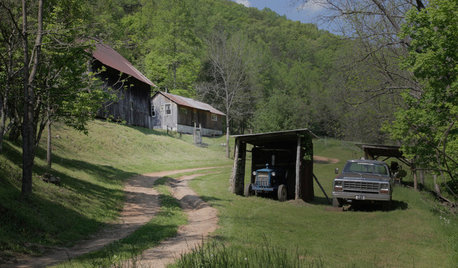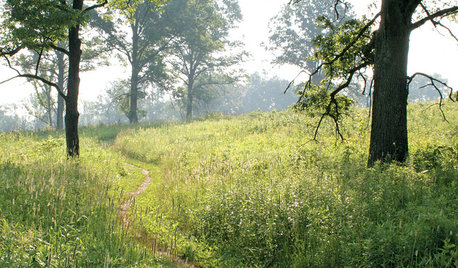Vermicompost
msfuzz
15 years ago
Related Stories

GARDENING GUIDESHouzz TV: Make a Worm Bin for Rich Soil and Happy Plants
A worm-powered compost bin that can fit under a sink turns food scraps into a powerful amendment for your garden. Here’s how to make one
Full Story
GARDENING GUIDESGet on a Composting Kick (Hello, Free Fertilizer!)
Quit shelling out for pricey substitutes that aren’t even as good. Here’s how to give your soil the best while lightening your trash load
Full Story
HEALTHY HOME6 Tips From a Nearly Zero-Waste Home
Lower your trash output and increase your quality of life with these ideas from a mom who did it to the max
Full Story
TASTEMAKERSNew Series to Give a Glimpse of Life ‘Unplugged’
See what happens when city dwellers relocate to off-the-grid homes in a new show premiering July 29. Tell us: Could you pack up urban life?
Full Story
FARM YOUR YARDHow to Grow Vegetables in Containers
Get glorious vegetables and fruits on your patio with a pro’s guidance — including his personal recipe for potting mix
Full Story
GARDENING GUIDES5 Easy Ways to Break Free of a Gardening Rut
Experience your garden in a whole new way — no big budget or major effort required — with these invigorating ideas
Full StoryMore Discussions







Skybird - z5, Denver, Colorado
msfuzzOriginal Author
Related Professionals
Ashburn Landscape Architects & Landscape Designers · Benbrook Landscape Architects & Landscape Designers · Maple Heights Landscape Architects & Landscape Designers · Waterbury Landscape Contractors · Hicksville Landscape Contractors · Hilo Landscape Contractors · La Verne Landscape Contractors · Mission Viejo Landscape Contractors · Pompton Lakes Landscape Contractors · Rockland Landscape Contractors · San Antonio Landscape Contractors · Carson Solar Energy Systems · Frankfort Solar Energy Systems · Half Moon Bay Solar Energy Systems · Sanger Solar Energy SystemsSkybird - z5, Denver, Colorado
greenbean08_gw